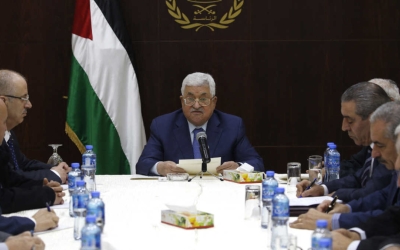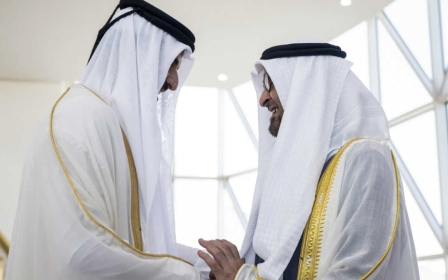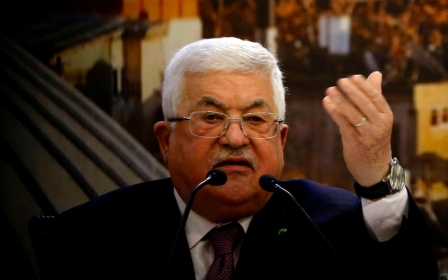Mahmoud Abbas cuts short Saudi trip after Israel launches West Bank assault
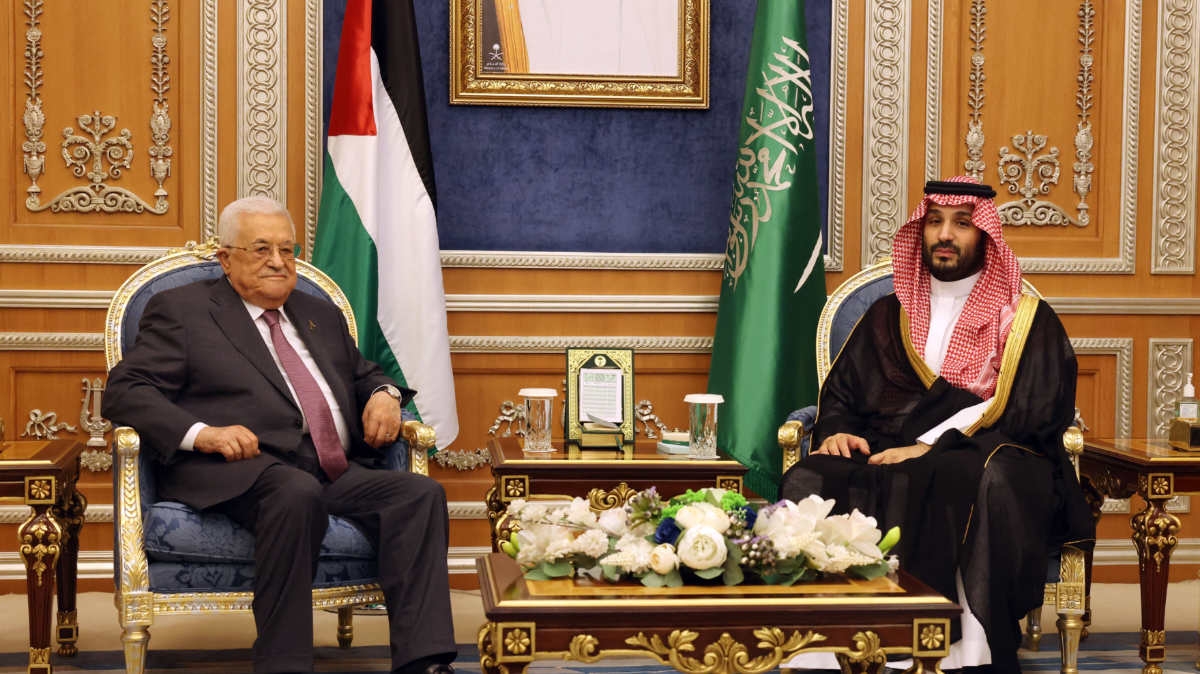
Palestinian Authority President Mahmoud Abbas cut short his visit to Saudi Arabia on Wednesday and returned to Ramallah after Israel launched a large-scale offensive in the occupied West Bank.
Abbas arrived in Saudi Arabia on Monday as part of an official visit to the Gulf states, where he discussed Israel’s war on Gaza with Saudi Arabia's Crown Prince Mohammed bin Salman.
He cut short his trip "due to Israel’s escalating aggression in the northern West Bank”, Palestinian news agency Wafa reported.
Israel’s military offensive in the occupied West Bank is the largest since its 2003 “defensive shield” operation during the Second Intifada, according to Israeli media.
Drone strikes hit Jenin, Tulkarm and Tubas as troops opened fire at Palestinians on the ground, killing at least nine people, including seven in Tubas and two in Jenin, according to the Palestinian health ministry.
New MEE newsletter: Jerusalem Dispatch
Sign up to get the latest insights and analysis on Israel-Palestine, alongside Turkey Unpacked and other MEE newsletters
Military sources told the Times of Israel that the attack was expected to last several days. Israel's Channel 12 said four battalions are involved in the offensive, including ground troops and the air force.
The assault is likely to further erode the Palestinian Authority’s popularity, which is already at rock bottom.
Hamas-Fatah rivalry
The Fatah-led Palestinian Authority partially administers the occupied West Bank, while Hamas had been the de facto ruling power in Gaza prior to the current war.
The two forces have engaged in political rivalry for decades. After Hamas won legislative elections in 2006, Fatah members clashed violently with the group, resulting in Hamas’s total control over the Gaza Strip, while Fatah's Mahmoud Abbas, aged 88, has clung to power, squashing internal opposition and cancelling elections.
Abbas keeps a closed counsel, diplomats and analysts say, relying on a small coterie of ageing technocrats and spy chiefs who belong to Fatah, a secular party and main rival to Hamas, whose roots are in the Muslim Brotherhood.
Since the Hamas-led 7 October attacks on southern Israel, the group’s popularity has surged in the occupied West Bank and neighbouring Jordan.
China brokered a unity agreement between Hamas and Fatah in July, but analysts and regional diplomats say there has been little sign of cooperation between the two Palestinian factions.
Why is the PA unpopular?
The PA’s unpopularity among Palestinians stems from rampant corruption and its inability to prevent settlement expansion in the occupied West Bank. Many Palestinians view the PA’s security services as Israeli collaborators.
Israel’s latest offensive is likely to put further pressure on the PA, which has been powerless to stop Israeli military incursions in the occupied West Bank, including in Area A, which was established during the Oslo Accords to be strictly under the PA’s control.
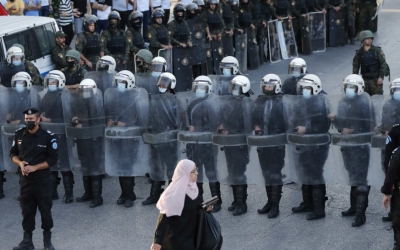
Meanwhile, the US and Israel have sparred over whether the PA should govern Gaza. Middle East Eye revealed that some US officials hope to bolster existing security cooperation with the PA’s security forces to eventually govern Gaza.
The PA says it is only a matter of time until it returns to Gaza, although some analysts speculate whether the ageing Abbas wants to take on governance of the war-ravaged enclave.
Abbas’s visit to Saudi Arabia comes as the UAE works behind the scenes to form a national committee of Palestinian leaders and business figures loyal to exiled former Fatah leader and Palestinian strongman Mohammed Dahlan to govern Gaza, MEE reported. The UAE hopes that Dahlan could succeed the ageing Abbas.
Riyadh appears to have taken a more hands-off approach to the issue than the UAE. It has curbed enthusiasm that it could normalise relations with Israel, saying it needs to see genuine progress toward a two-state solution. Saudi Arabia’s foreign minister has been particularly outspoken.
"Israel doesn't get to decide whether or not the Palestinians get a right to self-determination,” Foreign Minister Faisal bin Farhan said.
Middle East Eye delivers independent and unrivalled coverage and analysis of the Middle East, North Africa and beyond. To learn more about republishing this content and the associated fees, please fill out this form. More about MEE can be found here.


